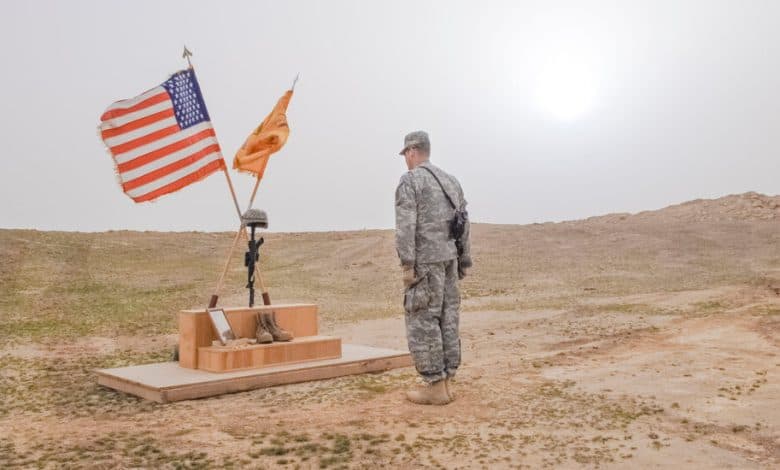How Should We Honor the Dead of Our Failed Wars?

About 10 years ago, as the war in Afghanistan was slowly, painfully winding down, I walked through Arlington National Cemetery with a fellow Marine veteran and a relative of mine visiting from Ireland. We passed row after row of pristine white tombs, the dead of all the just wars and unjust wars that made and remade this country, and my relative told us he found it quite moving; he hadn’t been expecting that. Perhaps he thought it’d be more bombastic, or obviously militaristic, and he was taken by the beauty and serenity and quiet dignity of the place.
So we brought him to Section 60 to see some of the newest graves, of kids born in the ’90s, and I told him the sight filled me with rage, these young lives thrown into a mismanaged war, where even their deaths, at that late stage, were mostly ignored. Just the background hum of a global superpower.
A couple of years later, in 2021, the Afghan war finally ended, taking with it a few American children of the 2000s, and, in a moral failure laid on top of the military failure, leaving tens of thousands of Afghans who worked with us at risk in the now completely Taliban-controlled country. The last Marines to fall died in a suicide bombing at a gate to Kabul’s airport, a blast that killed 11 Marines, one Navy medic, one soldier and about 170 Afghan civilians. The Marines were trying to manage the chaos of the poorly planned evacuation of Afghans from Kabul — a humanitarian mission at heart, trying to help those we were abandoning. A week before she died, one of the Marines, Sgt. Nicole Gee, posted a photo of her cradling a baby in Kabul and captioned it, “I love my job.”
America responded to those deaths with a drone strike against a Kabul vehicle the military claimed was transporting ISIS members who were about to carry out another attack, but that, in a twist that felt grotesquely emblematic of so many of our failures, turned out to carry an Afghan aid worker. The blast killed the aid worker and his relatives, seven of whom were children. The sort of people those Marines died trying to help.
How do you memorialize the dead of a failed war? At Arlington, it’s easy to let your heart swell with pride as you pass certain graves. Here are the heroes that ended slavery. Here are the patriots who defeated fascism. We think of them as inextricably bound up with the cause they gave their life to. The same can’t be said for more morally troubling wars, from the Philippines to Vietnam. And for the dead of my generation’s wars, for the dead I knew, the reasons they died sit awkwardly alongside the honor I owe them.